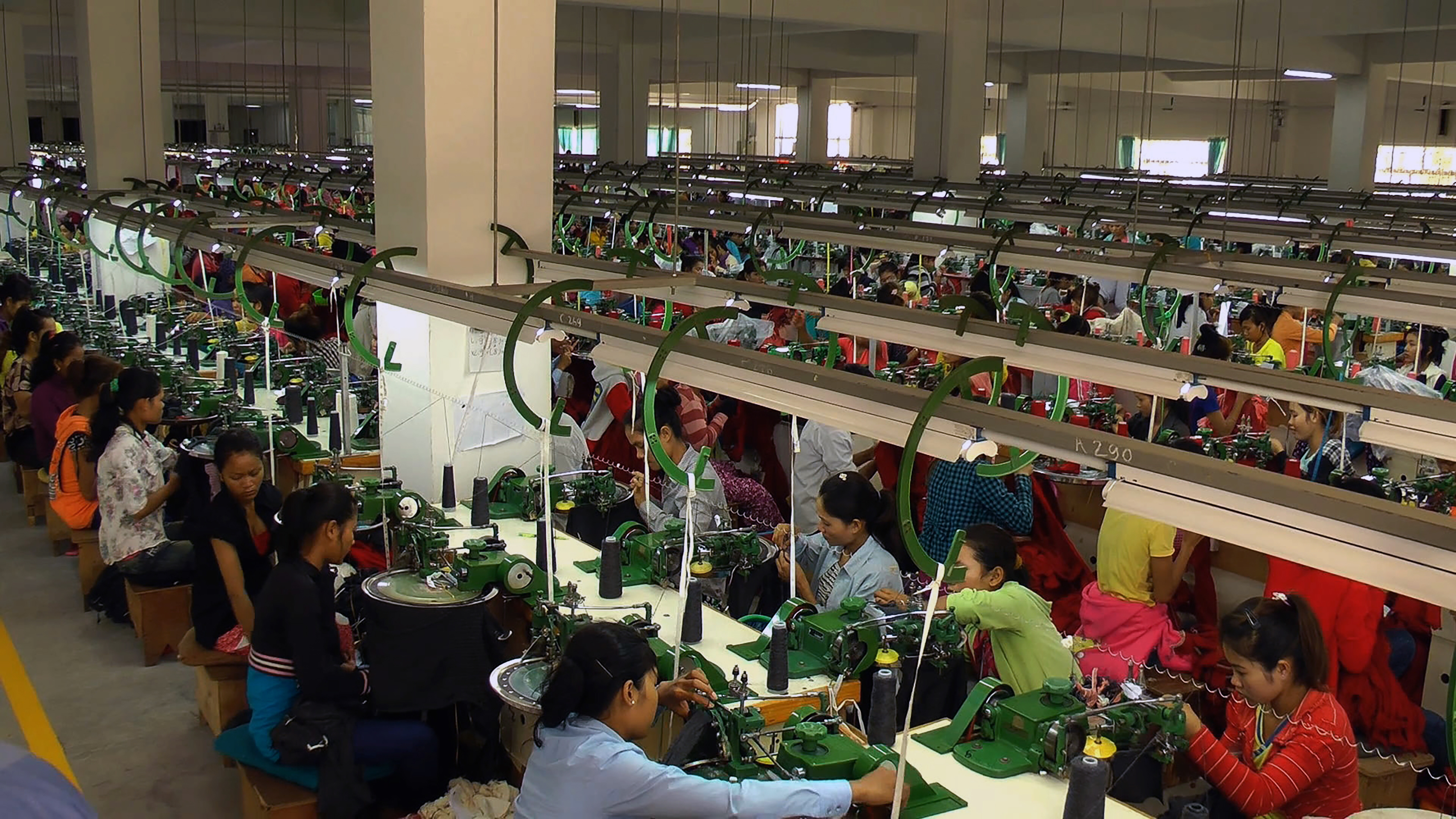
Fossil free future
Towards a fossil free future
At the Paris climate conference in 2015, 195 countries agreed to limit global warming to no more than 2 degrees Celsius
Read more
ESG – short for Environmental, Social, and Governance – is a tool that helps investors go beyond the traditional financial analysis of corporate value by including sustainability metrics. Risk and opportunities pertaining to environmental, social, and governance matters are assessed in all our investment processes – to maximise long-term outcomes for our investors.
ESG is not just an ethical issue, it's a financial one. We believe that carefully managed ESG integration is an indispensable tool for proper risk management and a prerequisite for long-term healthy returns. Our organisational policies and procedures serve as a collective roadmap to achieve this on behalf of our investors; to ensure that the companies we invest in meet our expectations of ESG performance.
Continue the read to learn about our processes and means for investing with a sustainable aim – in detail.

Nowadays, numbers are not sufficient.to determine the value of an investment. Our funds are subject to norms-based screening, which identifies companies that are allegedly involved in breaches of international law and norms on environmental protection, human rights, labour standards, and anti-corruption. If a company is identified in this screening process, an internal assessment of the company and the incident is initiated. Typical actions can consist of engagement, quarantine (meaning that the fund can hold on to its investments in the company but not make any further investments at the moment), or exclusion.
For more information, please refer to our Responsible Investment Policy.
Our funds exclude companies involved in serious breaches of international norms, where engagement is deemed not to be possible or effective. For example, we ban investments in companies active in the production of controversial weapons, including – but not limited to - cluster munitions and anti-personnel mines, as well as nuclear weapons. Our funds also do not invest in companies deriving more than 10% of their revenues from thermal coal and exclude companies involved in the production of fossil fuels from oil sands or through arctic drilling.
The exclusion list can be found here.
Exclusions aim at limiting investment exposure to certain sectors or activities that may be considered to be damaging to the environment and/or society at large. Sector screenings assess a company’s involvement in a specific activity measured by the revenue derived from this activity. Sector exclusions are the result of screenings based on the data and methodology of selected data vendors.
Methodologies are available with different exclusion filters including ethical filters targeting tobacco, alcohol, gaming, pornography, etc. In addition, some products also feature targets or limits on carbon footprint/intensity relative to the benchmark, targeted minimum ESG score, or other exclusion lists like the so-called NBIM list of the Norwegian Government Pension Fund Global or the Carbon Underground 200 list.
The environmental and social impact of the activities of all Nordea Funds investee companies is assessed on an ongoing basis through our firm-level PAI integration. Companies identified as outliers on one or more PAI indicators are objects for further analysis, which may result in a recommendation for action.
For more information, please see our Responsible Investment Policy and Disclosure Statement on the Integration of Principal Adverse Impact on Sustainability Factors.

We undertake a range of engagement activities with companies, in order to affect and influence these to improve their environmental, social, and governance practices, including promoting a long-term approach to decision-making. Our active ownership tools include voting, attending Annual General Meetings, representation on nomination committees, and engaging directly with companies.
A detailed description of our engagement processes can be found in our Responsible Investment Policy.
A substantial and growing part of our funds is also subject to our Paris-Aligned Fossil Fuel Policy (PAFF), which excludes companies involved in fossil fuel production, distribution, or services if these do not have a recognised strategy to achieve a Paris-aligned emissions path. For funds where the PAFF is not implemented as a hard exclusion criterion, the PAFF acts as guidance for engagement. The PAFF criteria also inform the prioritisation of our top-down thematic engagements.
The policy and a list of the companies covered can be found here.
Some of our funds, particularly our Stars product range, undergo a deeper ESG screening. For the Stars funds, we utilise our proprietary ESG scoring system and carry out bespoke analysis carried out by the Nordea Responsible Investment team and the financial analysts within Nordea Asset Management. The methodology focuses on selecting companies with sound fundamentals as well as high ESG scores (minimum B or B+ on an A to C scale).
Using the Sustainability Accounting Standards Board (SASB) materiality map, company analysis includes enhanced due diligence on environmental, social, and governance risks material to the company, and considers how companies manage their identified ESG risks.
Furthermore, each company's business model alignment with the UN Sustainability Goals (SDGs) is taken into consideration, as the methodology’s exposure aims to skew toward companies whose activities are net supportive or neutral, rather than detracting towards, the SDGs.
ESG scores are recalibrated regularly and at least annually, or if triggered by relevant negative or positive events. The ESG model sources data from several external data providers as input for the ESG score.
Our thematic ESG funds all apply proprietary methods to identify companies that can be expected to contribute to, or benefit from, the ESG theme in question. Often, in-depth research will reveal potential investee companies with activities in areas that are not reflexively associated with the theme of the methodology. For example, the holdings of the climate methodology are far broader than the traditional renewable energy and related sectors usually associated with combating or adapting to climate change. Methods are optimised according to the specific theme and may differ from product to product.
Our balanced funds with a sustainable profile are primarily investing in other funds that are eligible within the sustainable selection that Nordea offers. These are funds that have higher thresholds for integrating ESG risks or that invest according to a specific theme that supports a sustainable transition, i.e. climate or social efforts. The methodology can also hold direct investments that apply the same methodology as the funds following Nordea’s sustainable selection.

Our ESG methodology for funds utilise an approach to ESG where we screen out holdings with a lower ESG score according to either MSCI or our own proprietary ESG scoring system. At the same time, the methodology applies a sector-based exclusion, limiting the exposure to businesses with more than five percent of revenues from the industries of alcohol, coal mining, gambling, military equipment, pornography, and tobacco. It also applies a low-carbon overlay that specifies that the total carbon footprint of the fund needs to be at least 25 percent lower than the benchmark.
Our ESG methodology for bonds focuses on both government-issued bonds and corporate-issued bonds with different risk profiles. A large proportion of the bonds are government bonds from Euro countries, which by most research firms are rated to have a high general ESG rating, i.e. they have a high level of environmental considerations and social responsibility as well as a highly functional governance and judicial system. However, if international sanctions or violations of international conventions occur in a Euro country, the country's government bonds will be excluded.
Another part of the portfolio consists of corporate bonds. The companies that issue bonds are assessed from a sustainability risk perspective by the Responsible Investments team in collaboration with the responsible portfolio managers. As with sustainable equities, we use a combination of quantitative and qualitative analysis.
For more information on the methodologies used to assess, measure, and monitor the environmental or social characteristics or the sustainable investment objectives, please see Nordea Funds Responsible Investments Policy. For more product-specific information on environmental or social characteristics or the sustainable investment objective of the funds, please visit Nordea.fi.
Given the size of our investment universe across its various investment boutiques and methodologies, we use a range of external data providers of ESG data as well as internal research and our proprietary ESG scoring platform. We evaluate the quality of all internal and external data on an ongoing basis and continuously assess if new data providers can improve the analysis and models. All data providers have to fulfill the expectation set forth in Nordea’s Supplier Code of Conduct. Prior to a data provider being chosen as a supplier, extensive market research is conducted, and the potential data providers are assessed on issues such as data quality, coverage, security, methodology, price, reliability, and conflict of interest.

Fossil free future
At the Paris climate conference in 2015, 195 countries agreed to limit global warming to no more than 2 degrees Celsius
Read more
What is SFDR?
SFDR is an EU regulation which will ensure more information on how investment funds incorporate sustainability risks.
Read more